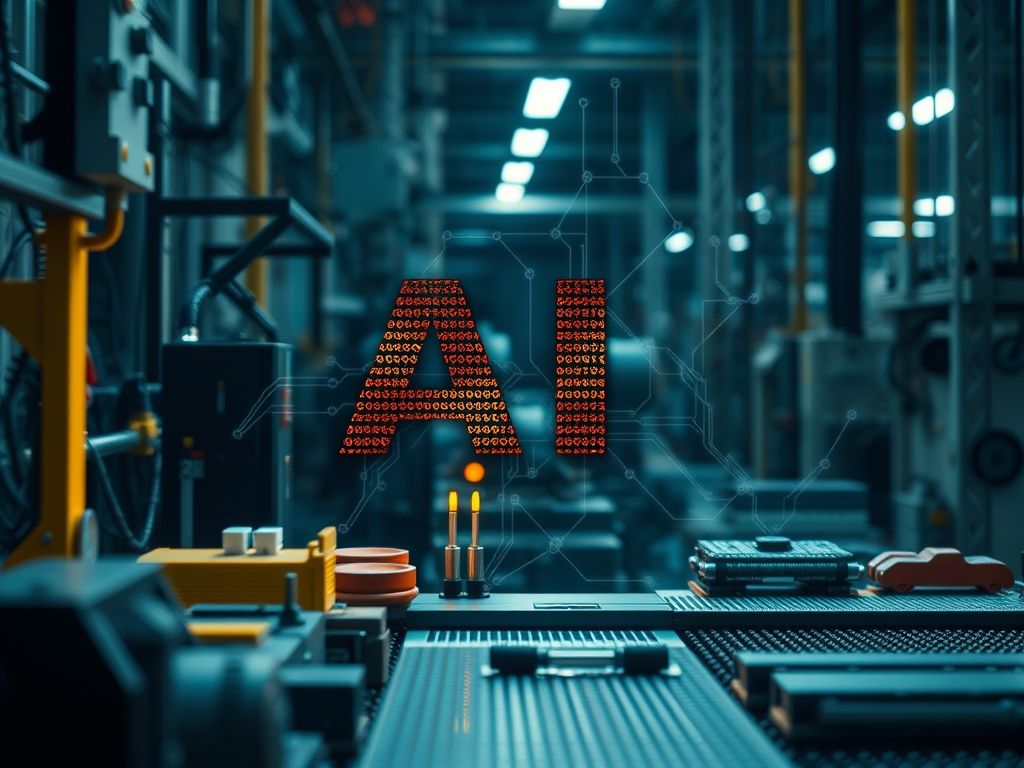Understanding AI in Manufacturing
Artificial Intelligence (AI) in manufacturing refers to the integration of intelligent systems and algorithms into the production processes to enhance efficiency, quality, and decision-making. This technology leverages data analytics, machine learning, and automation to optimize operations, reduce costs, and improve product quality.
The Importance of AI in Manufacturing
In today’s fast-paced industrial environment, the adoption of AI technologies has become a crucial component for businesses looking to maintain a competitive edge. The manufacturing sector is increasingly turning to AI to automate processes, predict maintenance needs, and streamline supply chains. By harnessing AI, manufacturers can not only increase productivity but also enhance the overall customer experience.
Key Benefits of Implementing AI
- Increased Efficiency: AI systems can analyze vast amounts of data to identify inefficiencies in production lines, leading to streamlined operations.
- Predictive Maintenance: AI can forecast equipment failures before they occur, minimizing downtime and maintenance costs.
- Quality Control: Machine learning algorithms can detect defects in products at a speed and precision that surpasses human capabilities.
- Supply Chain Optimization: AI can analyze supply chain data to predict demand and optimize inventory levels.
Real-World Applications of AI in Manufacturing
There are numerous practical applications of AI in manufacturing that demonstrate its transformative potential. Below are some real-world examples:
1. Smart Factories
Smart factories utilize AI to create interconnected production environments. These factories can monitor equipment performance and adjust processes in real-time based on data analytics. For instance, Siemens has implemented AI-driven systems in their factories, resulting in increased production efficiency and reduced waste.
2. Robotics and Automation
Robots equipped with AI capabilities can perform complex tasks that require precision and adaptability. For example, FANUC’s robotic arms use AI to learn from their environment and optimize their movements during assembly, improving overall throughput.
3. Quality Assurance
AI algorithms can analyze images from production lines to identify defects that human inspectors might miss. Companies like Nestlé employ AI-based vision systems to ensure that their products meet high-quality standards before they reach consumers.
4. Supply Chain Management
AI enhances supply chain management by predicting demand fluctuations and optimizing delivery routes. Amazon uses AI to manage its extensive logistics network, ensuring timely deliveries and efficient inventory management.
How to Implement AI in Your Manufacturing Processes
Integrating AI into manufacturing processes may seem daunting, but it can be done in a series of manageable steps:
- Assess Current Processes: Identify areas where AI could add value, such as production efficiency or quality control.
- Invest in Data Infrastructure: Ensure you have the necessary data collection and storage capabilities to feed AI systems.
- Choose the Right AI Tools: Select AI solutions that best fit your manufacturing needs, whether it be machine learning platforms, predictive analytics, or robotic systems.
- Train Your Workforce: Provide training for employees to effectively use AI tools and understand their benefits.
Related Concepts in AI and Manufacturing
AI in manufacturing is interconnected with several other concepts that are essential in the tech landscape:
- Internet of Things (IoT): IoT devices collect data that AI systems can analyze to enhance manufacturing processes.
- Machine Learning: A subset of AI that focuses on the development of algorithms that enable systems to learn and improve from experience.
- Big Data: The vast amounts of data generated in manufacturing provide the raw material for AI systems to analyze and derive insights.
- Cyber-Physical Systems: These systems integrate physical processes with computation, enhancing automation and control in manufacturing.
Conclusion: Embracing AI in Manufacturing
The integration of AI in manufacturing is no longer a futuristic concept; it is a present-day reality that offers tangible benefits to businesses willing to embrace it. From increasing efficiency to enhancing quality control, AI has the potential to revolutionize the manufacturing landscape. As technology continues to evolve, staying informed and adaptable will be key to leveraging AI effectively in your operations.
As a final thought, consider how you can apply AI tools in your own manufacturing processes. Whether it’s through predictive maintenance or smart factory solutions, the opportunities are vast. Start small, assess your needs, and gradually implement AI to unlock the full potential of your manufacturing capabilities.









